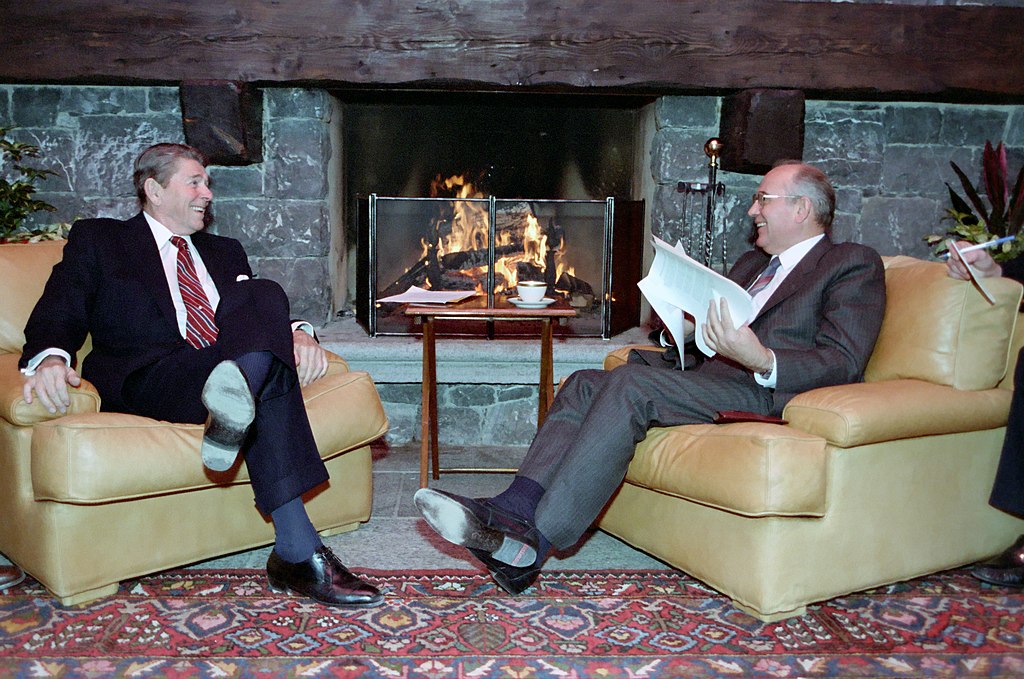Module 10: Cold War Tensions and Domestic Transformations
Section outline
-

The Cold War dramatically impacted Western countries' global standing and domestic development. The new ideological competition between the United States and the Soviet Union defined the post-1945 world. Simultaneously, decolonization and the non-aligned movement fostered new relationships, opportunities, and challenges for all countries. As the Cold War changed under the weight of the Cuban Missile Crisis, the Vietnam War, and Detente, new challenges materialized. At each step along the way, Europe played a big part in shaping the new, post-1945 world order.
(Credit: President Ronald Reagan and Soviet General Secretary Gorbachev at The First Summit in Geneva Switzerland. Reagan White House Photograph Series, 1985. This file is a work of an employee of the Executive Office of the President of the United States, taken or made as part of that person's official duties. As a work of the U.S. federal government, it is in the public domain.)
Upon completion of this module, you will be able to:
- Explain how the Cold War impacted the world and the West in particular
- Discuss the impact of non-alignment and the changing nature of the Cold War
- Discuss new domestic transformations in the Western world
- Evaluate Europe's place amidst decolonization and global tensions during the Cold war and after
To achieve these objectives:
- Read the Module 10 Introduction.
- Read and view the materials in the Module # Pressbooks book.
- Read Chapter 10 in Western Civilization II.
- Complete the Discussion, Source Assignment, Assignment, and Quiz.
Module Pressbooks Resources and Activities
You will find the following resources and activities in this module at the Pressbooks website. Click on the links below to access or complete each item.
Background Colour
Font Face
Font Kerning
Font Size
Image Visibility
Letter Spacing
Line Height
Link Highlight
Text Colour
